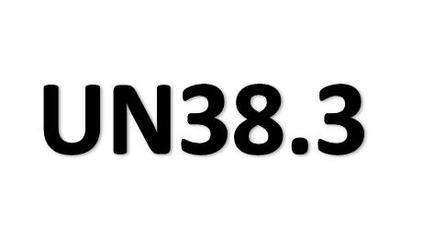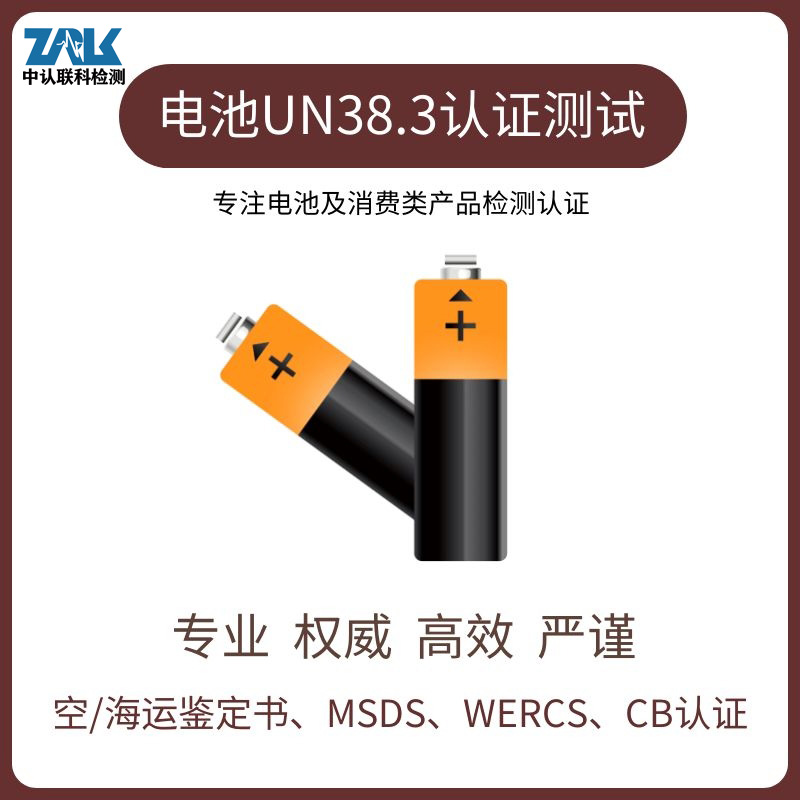In today's globalized world, product quality and safety standards have become an indispensable part of cross-border trade. For energy storage devices such as lithium-ion batteries, which are widely used in various electronic products, UN38.3 certification is not only a quality assurance, but also a passport to enter the international market. ZRLK will take you to a deeper understanding of the connotation, importance, process, and advantages of UN38.3 certification.
What is UN38.3 certification?
UN38.3 certification, also known as Section 38.3 of the United Nations Testing and Standards Manual, is a set of testing standards developed by the United Nations for the transportation of hazardous materials. It mainly evaluates the safety performance of hazardous materials such as lithium batteries during transportation. A product certified by UN38.3 means that it meets internationally recognized standards in terms of safety, stability, and reliability.

The Importance of UN38.3 Certification
With the development of technology, lithium-ion batteries have become an indispensable energy supplier for many electronic products such as smartphones, laptops, and electric vehicles. The potential risks of lithium batteries during transportation have also attracted global attention. UN38.3 certification ensures the safety of lithium batteries during transportation, reduces the risk of transportation accidents, and ensures the safety of personnel and property. Lithium batteries with UN38.3 certification are more easily accepted in the international market, which helps companies expand their overseas business.
The process of UN38.3 certification
The process of UN38.3 certification includes the following steps:
Sample preparation: The enterprise needs to provide samples of lithium batteries to be tested.
Safety testing: The sample will undergo a series of safety tests, including but not limited to short-circuit testing, overcharging testing, thermal shock testing, etc.
Test report: After the test is completed, a detailed test report will be issued, which will list the test items and results in detail.
Certification application: The enterprise submits a certification application to the relevant certification agency based on the test report.
Review and Approval: The certification body reviews the application, and those that meet the standards will receive UN38.3 certification.

The advantages of UN38.3 certification
Lithium batteries that have obtained UN38.3 certification have the following advantages:
International recognition: Certified products are recognized globally, which helps companies expand into international markets.
Security guarantee: Through strict safety testing, the safety of the product during transportation has been improved.
Enhancing credibility: Certification enhances the credibility of enterprise products and enhances consumer trust in the products.
Risk reduction: reduces potential risks and losses caused by product safety issues.
UN38.3 certification is not only a safety barrier for the lithium battery industry, but also a stepping stone for enterprises to enter the international market. By obtaining UN38.3 certification, enterprises can not only ensure the safety performance of their products, but also enhance their brand image and market competitiveness. In the context of globalization, UN38.3 certification will undoubtedly become an important driving force for the development of the lithium-ion battery industry.




![[Compliance Warning] 16 new CMR substance restrictions in EU REACH Annex XVII have come into effect! Relevant enterprises need to check as soon as possible](/uploads/image/202509/68c1499597ee0.jpg)







